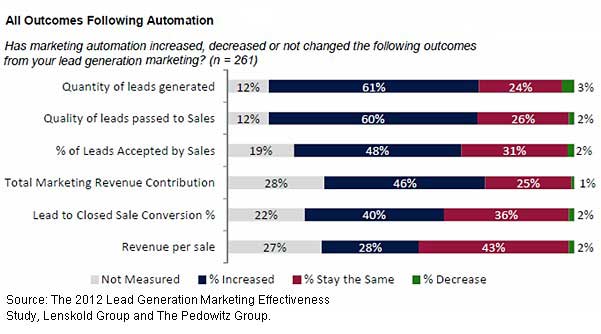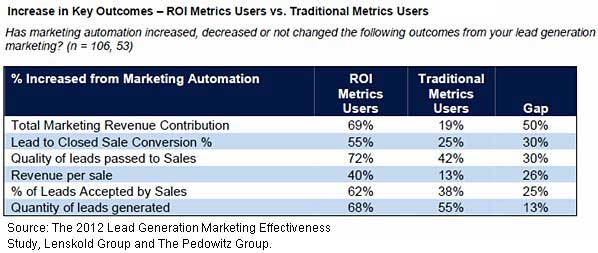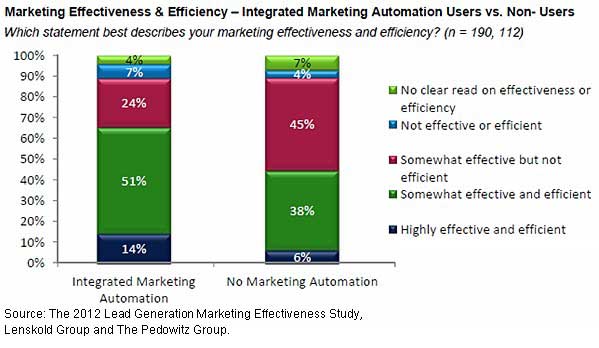Among B2B organizations, the use of integrated marketing automation appears to boost the effectiveness of lead generation efforts across various metrics, such as the quantity of leads generated, the quality of leads passed to sales teams, and the proportion of leads accepted by sales, according to a report by Lenskold Group and The Pedowitz Group.
Roughly one-half (51%) of surveyed lead generation marketers use some type of integrated marketing automation platform (i.e., a system integrated with CRM and sales), the study found. Another 19% use a marketing automation system, but one not integrated with CRM or sales.
Among those 51% who use an integrated marketing automation platform, more than six in ten (61%) cite lead quantity as a key benefit of their system, while 60% cite a higher quality of leads passed to sales.
Those two metrics tend to be the first impacted by automation—and the easiest to track. Sales acceptance, which tends to increase as the quality of leads is proven to the sales force, is higher for 48% of marketers.

Interestingly, one in four lead gen marketers (28%) report an increase in revenue per sale.
The measure of marketing's impact on customer value has not traditionally been a high priority for lead gen marketers. However, as marketers focus more on content marketing, their impact on customer value is becoming more critical, according to the report.
Even so, roughly one in four marketers say they have no measure for total marketing revenue contribution (28%), revenue per sale (27%), and lead to closed sale conversion rate (22%).
Below, additional findings from the 2012 Lead Generation Marketing Effectiveness Study by Lenskold Group and The Pedowitz Group.
Impact of Using ROI Metrics
Marketing automation users who also use ROI metrics to assess marketing effectiveness are far more likely than marketers using traditional, non-financial metrics to realize an increase in total marketing revenue contribution from their automation (69% vs. 19%):

Boosting Marketing Effectiveness
Not surprisingly, companies with integrated marketing automation are more likely than those with no marketing automation to have increased levels of efficiency in addition to effectiveness.
The combined total of marketers describing their marketing as highly effective and efficient or somewhat effective and efficient is much higher for users of integrated marketing automation (65% vs. 44% among those with no marketing automation).

Marketers without automation typically fall in the third tier: somewhat effective but not efficient.
About the data: Findings from The 2012 Lead Generation Marketing Effectiveness Study are based on a survey of 373 B2B lead generation marketers recruited with the support of Demand Gen Report in the second quarter of 2012.



